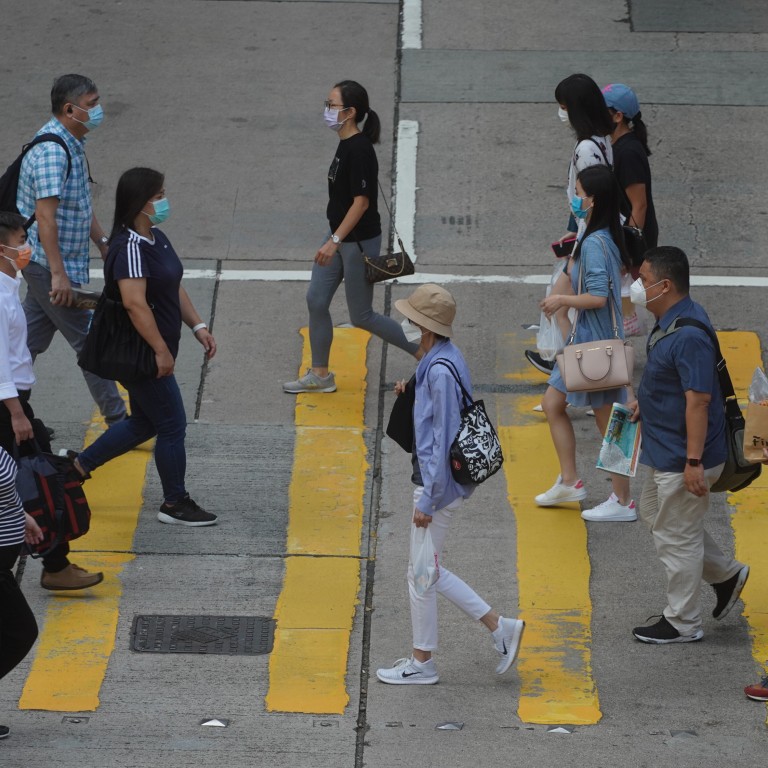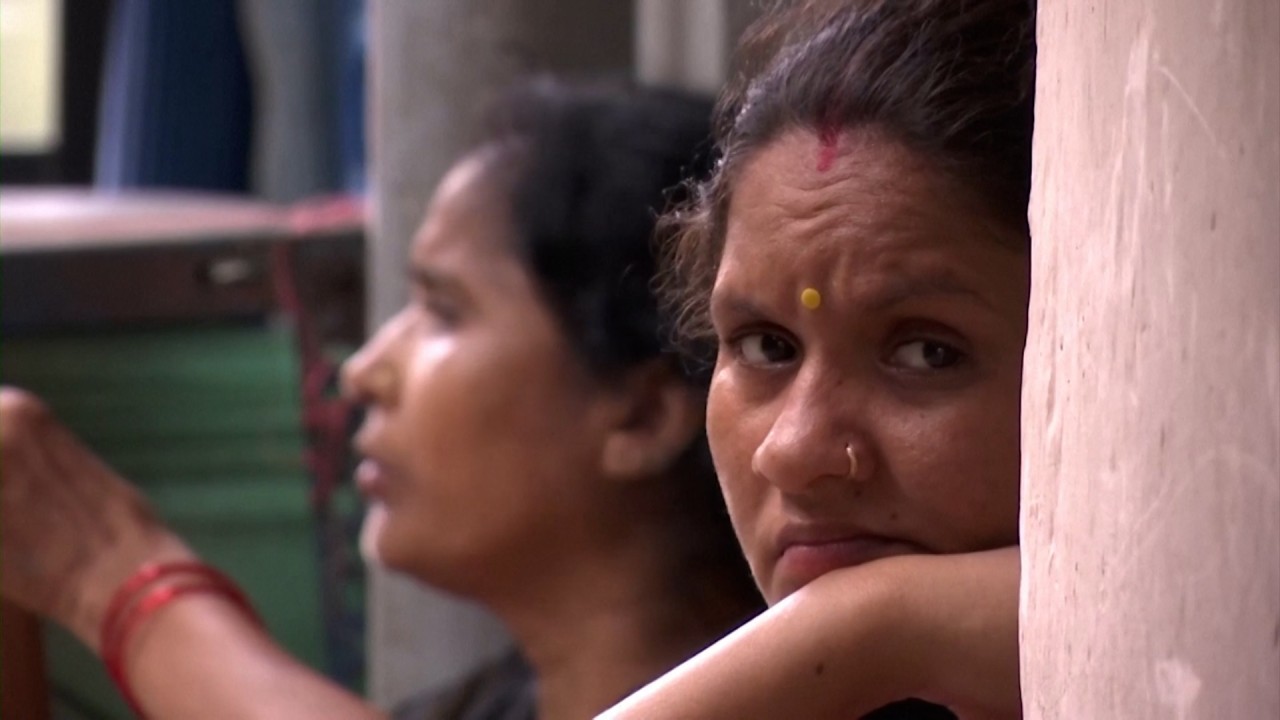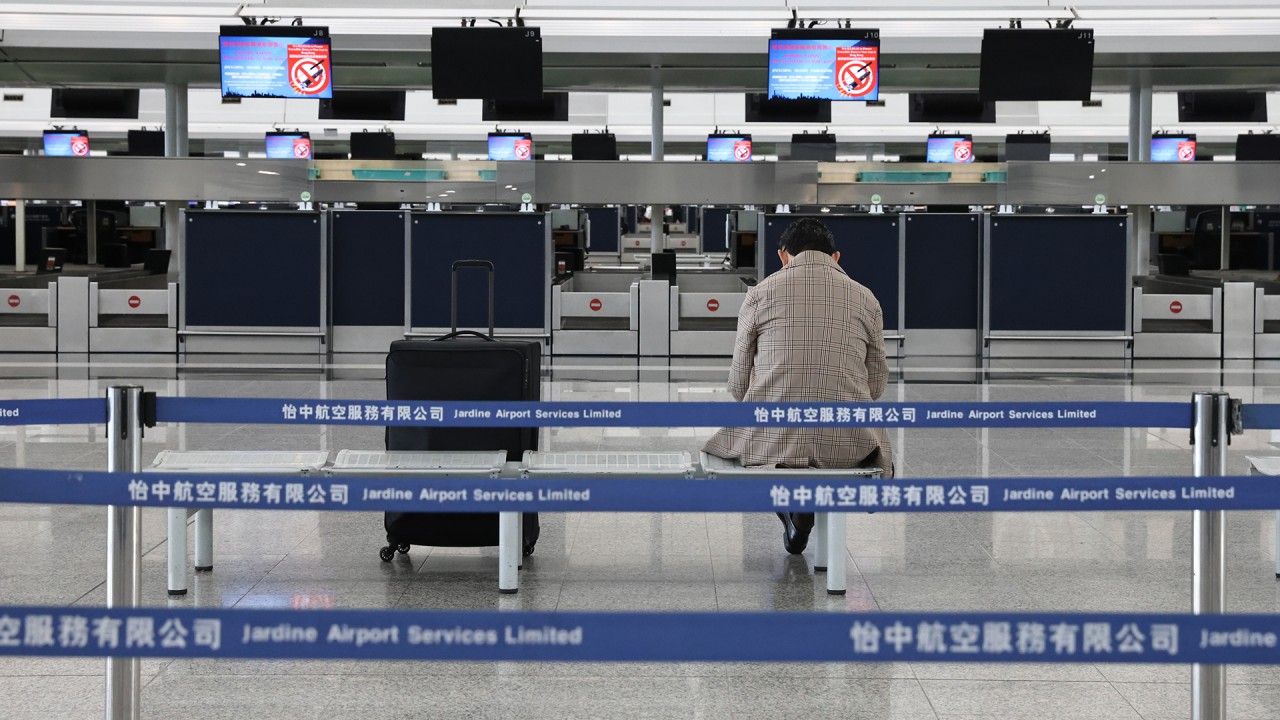
Pandemic’s dark clouds still cast a shadow over Hong Kong’s economy
- Like other high-income economies, Hong Kong’s ability to vaccinate and provide financial support is helping it towards an earlier recovery
- But its draconian quarantine scheme and the mainland border closure have muddied prospects of a jobs and wages recovery
Bankruptcy data from the Official Receiver’s Office tells a fascinating story. Through the severe acute respiratory syndrome (Sars) epidemic, bankruptcies leapt to over 2,000 a month on average. In 2009, after the global financial crisis, they jumped to more than 1,000. But throughout the pandemic, bankruptcies fell to fewer than 600.
Add in the underemployment numbers that attempt to take account of those in part-time work or on limited hours, and the recovery from December-February has been larger, from an aggregate 10.7 per cent to 6.7 per cent.
Most troubling for Chan is the persistent reality of stagnating wages. As he pointed out, wages over the year to June rose by 1.1 per cent in nominal terms but have actually fallen by 0.3 per cent thanks to inflation.
Impact of inflation on Hong Kong’s most vulnerable has to be addressed
Again, Hong Kong’s cold comfort is that many other economies have suffered much more severely – and continue to do so. The International Labour Organization’s latest ILO Monitor, released a week ago, points to a world divided – with those able to vaccinate and provide financial support suffering much less and more likely to recover from the pandemic recession more speedily.
From the peak of the pandemic crisis in spring last year, when working hours worldwide dropped by the equivalent of 543 million full-time jobs, there has been a slow recovery, mainly concentrated in the world’s high-income economies where 60 per cent or more of the population has been vaccinated, and where almost US$17 trillion has been spent on fiscal stimulus.
The ILO Monitor says that, by the end of this year, the equivalent of around 125 million full-time jobs will still have been lost because of the pandemic, mostly concentrated in low-income economies where vaccination rates remain in single digits, and governments cannot afford stimulus.
The World Economic Forum, drawing on the Organisation for Economic Cooperation and Development’s Employment Outlook data, says: “Covid-19 has had a shattering effect on the world of work and in many countries it continues to do so.”
It estimates that 110 million jobs have been lost worldwide, about 20 million of them in the 38 economies making up the high-income OECD, and warns that most OECD economies will not recover to pre-Covid-19 employment levels until the autumn of 2023. Needless to say, low-income countries are expected to suffer even longer.
Hong Kong, which is not in the OECD but must be counted among high-income economies, has clearly benefited from its effective pandemic management, relatively high vaccination rates and generous fiscal stimulus, and ought to be among the earlier economies to recover.
If they are not relaxed soon, thousands of high-value-added jobs driven by Hong Kong’s international headquarter roles encompassing legal, accounting and financial services could be in long-term jeopardy.
David Dodwell researches and writes about global, regional and Hong Kong challenges from a Hong Kong point of view




